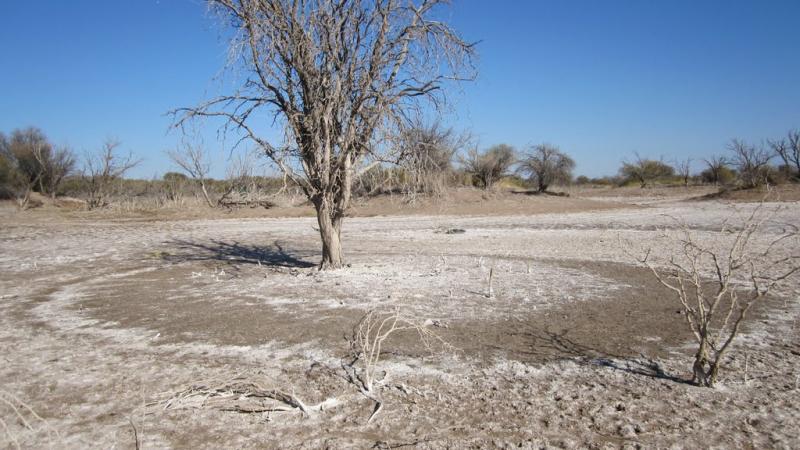Scientists Call for Action at EXPO Milano on Salinity, a Growing Agricultural Crisis: The Case of Iraq

Iraq, once the cradle of agriculture, is facing a growing crisis as increasing levels of salinity in its soil and irrigation water are reducing the country’s food production. Today, some 70 percent of the country’s irrigated area suffers from varying levels of salinity.
An estimated 25,000 hectares of Iraqi farmland are abandoned every year because of elevated salt levels from a combination of poor drainage system and salt-laden irrigation water, particularly in the Tigris-Euphrates basin in central and southern Iraq – the country’s traditional breadbasket.
The ‘roadmap’ to implement evidence-based salinity reduction and management is no doubt both time- and money-intensive. But what are the trade-offs?
“The cost of business as usual will be far more hard to afford in the long run. The ability of irrigated production systems to provide sustained high productivity is critical for food security”, states Dr. Kamel Shideed, Agricultural Economist and head of International Cooperation at ICARDA.
Mesopotamia, Cradle of Agriculture, scheduled on September 10 at the Expo Milano 2015, is set to bring the issue of salinity and land degradation to the forefront, through the lens of Iraq’s declining agricultural productivity.
The event will engage a group of high-level policy-makers from Iraq and Italy with scientists and socio-economists from development agencies, international research organizations and academia to discuss problems with agriculture production in Iraq and foster dialogue and cooperation on turning around the alarming levels of growing food insecurity in the country.
The event is organized by the Italian Ministry of Foreign Affairs and International Cooperation and University of Firenze in partnership with ICARDA and other stakeholder organizations.
The Iraq Salinity Project, a multi-disciplinary research project managed by ICARDA in partnership with the Government of Iraq, will provide scientific basis for discussions, particularly the resulting ‘roadmap’, which lays out options for countries to pursue to reduce and manage salinity. The roadmap provides evidence-based solutions at farm, irrigation district and regional scales, with assessments on the required time and money investments and expected returns. The research was funded by the Australian Centre for International Agricultural Research (ACIAR), AusAID and the Italian Government.
The Expo Milano event aims to gain consensus and support on a science and technology-driven framework to address the complex challenges of climate change, limited water resources and land degradation in Iraq.
Why Prioritize Salinity Problem
Salinity, common to irrigated production systems, is fast becoming a silent killer of productive lands, e.g., Indo-Gangetic Basin in India, Euphrates River Basin, Nile Delta, and Aral Sea Basin. Roughly 40% of the world’s food comes from irrigated farming. Today more than 20% of this area is facing loss of productivity from rising salt levels in soil. The global cost of salinity-afflicted loss in crop yields is costing a hefty sum of roughly $27.3 billion (USD) per year, according to a recent study, Economics of Salt-induced Land Degradation and Restoration, published by CGIAR’s Research Program on Water and Land Ecosystems. Furthermore, the salinized areas are increasing at a rate of 10% annually for various reasons.
